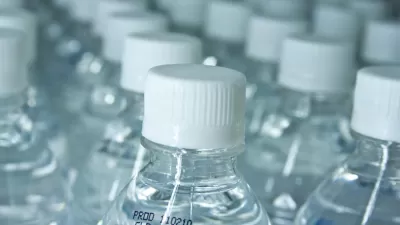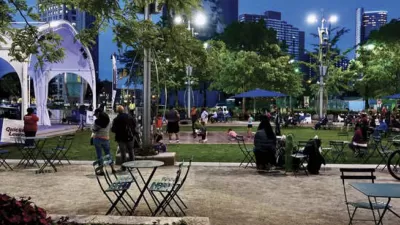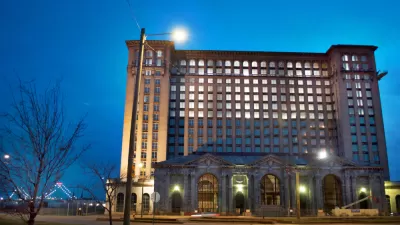Communities have demanded access to clean water for decades, in some cases. The coronavirus pandemic is compounding the struggle and illustrating the inadequacy of most local government responses.

We know that hand-washing with soap is a highly effective way to fight coronavirus, but for communities without access to potable water, safely following the hand-washing guideline is impractical and often impossible.
A 2018 study in the Proceedings of the National Academy of Sciences found that between 1982 to 2015, almost 45 million Americans accessed lead or chemical-laden water that did not meet health standards. Communities without access to clean water range "from small, rural towns in Kentucky to New Jersey’s densely populated city of Newark. And while clean water access isn’t only an issue for majority-black communities like Flint, Denmark, or Detroit, one study did find race to be the strongest correlative to lack of clean water," writes Khushbu Shah.
The new challenges posed by the coronavirus exacerbates injustices that these groups have experienced for decades. In supermarkets, when bottled water is available, shoppers are limited to buying only two gallons per person per visit.
Most local governments have not adequately addressed the issue. However, in Newark, New Jersey, workers have replaced about half of the city's close-to 19,000 lead-filled pipes since 2019. In other communities, residents are forced to rely on mutual aid and donations to ensure access to clean water before and during this time of national emergency.
FULL STORY: The pandemic has exposed America’s clean water crisis

Planetizen Federal Action Tracker
A weekly monitor of how Trump’s orders and actions are impacting planners and planning in America.

Maui's Vacation Rental Debate Turns Ugly
Verbal attacks, misinformation campaigns and fistfights plague a high-stakes debate to convert thousands of vacation rentals into long-term housing.

Restaurant Patios Were a Pandemic Win — Why Were They so Hard to Keep?
Social distancing requirements and changes in travel patterns prompted cities to pilot new uses for street and sidewalk space. Then it got complicated.

In California Battle of Housing vs. Environment, Housing Just Won
A new state law significantly limits the power of CEQA, an environmental review law that served as a powerful tool for blocking new development.

Boulder Eliminates Parking Minimums Citywide
Officials estimate the cost of building a single underground parking space at up to $100,000.

Orange County, Florida Adopts Largest US “Sprawl Repair” Code
The ‘Orange Code’ seeks to rectify decades of sprawl-inducing, car-oriented development.
Urban Design for Planners 1: Software Tools
This six-course series explores essential urban design concepts using open source software and equips planners with the tools they need to participate fully in the urban design process.
Planning for Universal Design
Learn the tools for implementing Universal Design in planning regulations.
Heyer Gruel & Associates PA
JM Goldson LLC
Custer County Colorado
City of Camden Redevelopment Agency
City of Astoria
Transportation Research & Education Center (TREC) at Portland State University
Jefferson Parish Government
Camden Redevelopment Agency
City of Claremont





























